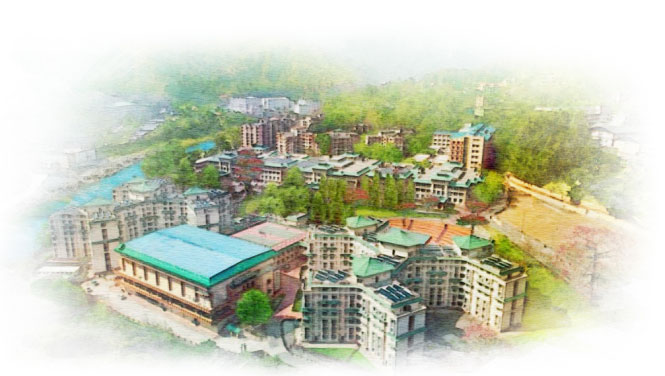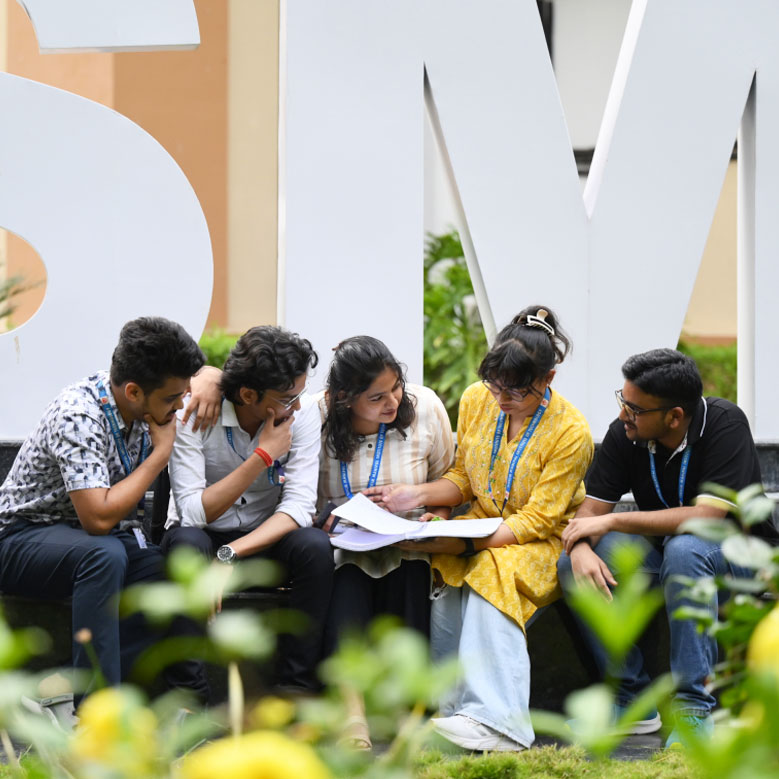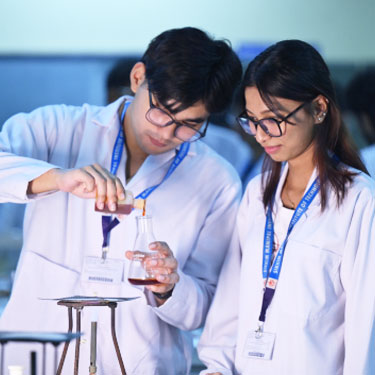DATES TO REMEMBER :
15th March 2026: Last date to apply for admissions
01st August 2026: Course commencement date
Overview
The M.Tech program in Structural Engineering at The Sikkim Manipal Institute of Technology helps engineers study in detail various structures such as architectural structures (buildings, houses, factories), civil infrastructures (dams, bridges, pipelines) and aerospace, mechanical ,naval structures (cars, ships, aeroplanes) under various environmental constraints.

Crafting success
stories with excellence
in education.
ELIGIBILITY
- Passed BE/B Tech in related branches of with 50% marks (45% for Reserved Category).
ENTRANCE EXAMINATION / ADMISSION PROCEDURE
a) Screening Test conducted at SMIT by the concerned Department
- While preparing the merit, 50% weightage is given to aggregate marks obtained in BE/B Tech and 50% weightage for marks obtained in screening test.
- b) For online application visit our website www.applysmit.in.
b) GATE Examination
- Four seats are reserved for Sikkim Government nominees. Candidates seeking admission under this category should contact Director - Technical Education, HRDD, Government of Sikkim.
Program FEES
| Fee | Fees For General (Gen), North East (NE), Defence (Def), ParaMilitary Force (PMF) ,GTA & SAARC | Fees For Sikkim Quota Students | Fees For Non SAARC |
| Caution Deposit | 5,000 | 5,000 | 5,000 |
| Exam Fees (One time per year) | 6,500 | 6,500 | 5,000 |
| Lumpsum | 2,01,400 | 1,21,100 | 2,51,800 |
| YEARLY | Fees For General Category Students | Fees For Sikkim Quota Students | Fees For Non SAARC |
| First Installment | 1,04,450 | 62,800 | 1,30,900 |
| Second Installment | 1,04,450 | 62,800 | 1,30,900 |
- Engineering knowledge: Apply the knowledge of mathematics, science, engineering
fundamentals, and an engineering specialization to the solution of complex
engineering problems.
- Problem analysis: Identify, formulate, review research literature, and analyze
complex engineering problems reaching substantiated conclusions using first
principles of mathematics, natural sciences, and engineering sciences.
- Design/development of solutions: Design solutions for complex engineering
problems and design system components or processes that meet the specified needs
with appropriate consideration for the public health and safety, and the
cultural, societal, and environmental considerations.
- Conduct investigations of complex problems: Use research-based knowledge and
research methods including design of experiments, analysis and interpretation of
data, and synthesis of the information to provide valid conclusions.
- Modern tool usage: Create, select, and apply appropriate techniques, resources,
and modern engineering and IT tools including prediction and modeling to complex
engineering activities with an understanding of the limitations.
- The engineer and society: Apply reasoning informed by the contextual knowledge
to assess societal, health, safety, legal and cultural issues and the consequent
responsibilities relevant to the professional engineering practice.
- Environment and sustainability: Understand the impact of the professional
engineering solutions in societal and environmental contexts, and demonstrate
the knowledge of, and need for sustainable development.
- Ethics: Apply ethical principles and commit to professional ethics and responsibilities and norms of the engineering practice.
- Individual and team work: Function effectively as an individual, and as a member
or leader in diverse teams, and in multidisciplinary settings.
- Communication: Communicate effectively on complex engineering activities with
the engineering community and with society at large, such as, being able to
comprehend and write effective reports and design documentation, make effective
presentations, and give and receive clear instructions.
- Project management and finance: Demonstrate knowledge and understanding of the engineering and management principles and apply these to one’s own work, as a member and leader in a team, to manage projects and in multidisciplinary environments.
- Life-long learning: Recognize the need for, and have the preparation and ability to engage in independent and life-long learning in the broadest context of technological change.
- Inculcating technical competencies in students to deal with real world Civil Engineering problems.
- Building competence and confidence in students to emerge as Civil Engineering
expert and entrepreneur.
- Click Here for Course Outcome
- Click Here for Program Outcome
- Click Here for Course Syllabus
Entrepreneurship
Development cell (EDC)
Helps students in exploring entrepreneurial opportunities.

Students are encouraged to engage in practical's making them industry ready

World-class campus in a tranquil environment

Best-in-class laboratories and workshops for practical exposure

